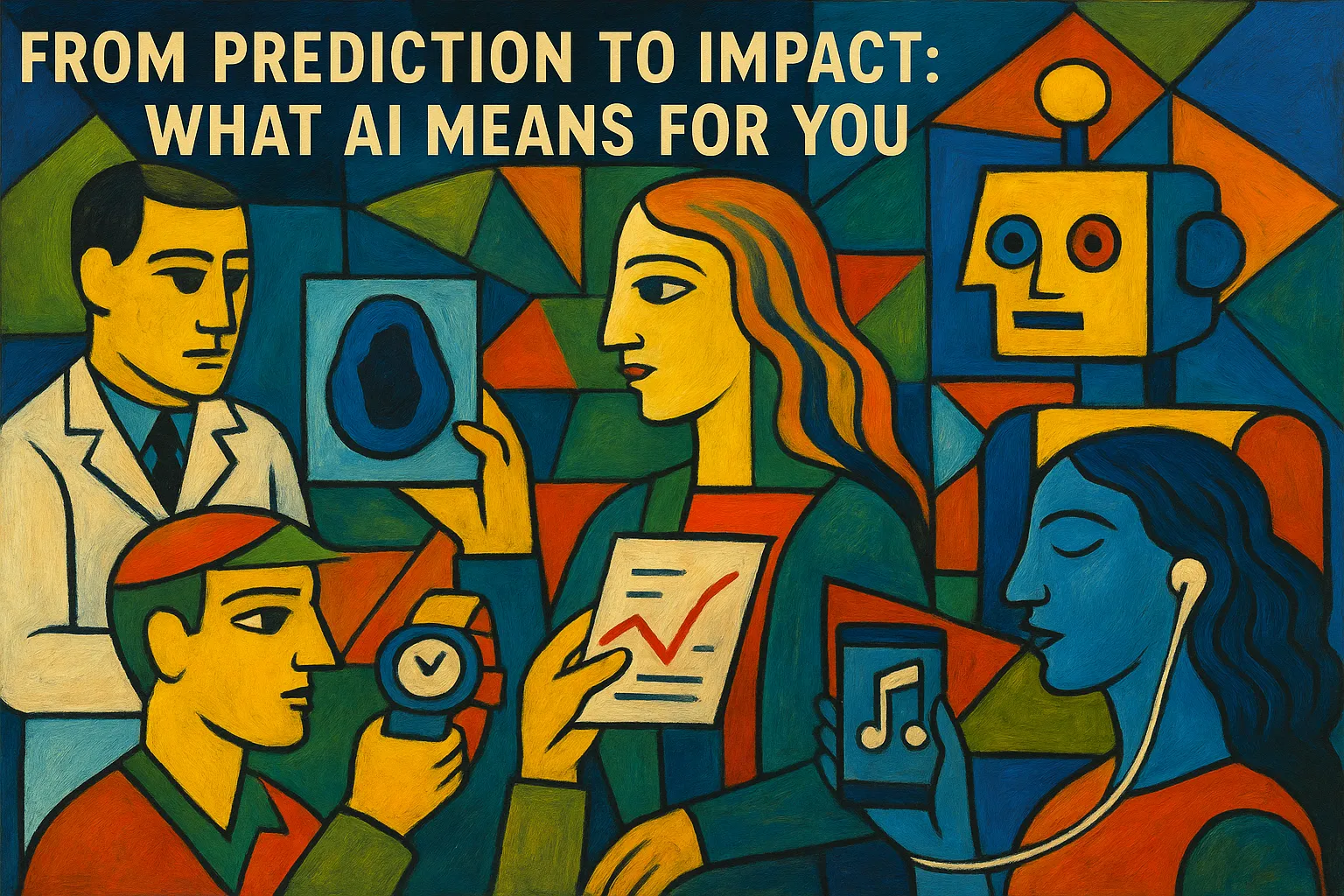"You don't have to understand AI to be formed by it—unless you need to."
Artificial Intelligence (AI) has quietly transitioned from a futuristic concept to a cornerstone of modern life. It is not just confined to research centers or technology companies anymore but now operates in the background—personalizing your online experience, optimizing logistics, and revolutionizing industries.
Whether you realize it or not, AI powered by machine learning (ML) is already influencing your daily decisions. But what does that mean for you, and why does it matter?
What Is Machine Learning and Why Should You Care?
At the heart of AI is Machine Learning: a method by which computers learn patterns in data and make predictions or decisions without being explicitly programmed.
In practice:
- Data is collected.
- Patterns are found.
- The system makes predictions based on those patterns—at scale, in real time.
As Andriy Burkov describes in The Hundred-Page Machine Learning Book, machine learning is "the science of turning data into predictions." And these predictions are increasingly the unseen framework of your digital existence.
Machine Learning Is the New Electricity
Just as electricity was the enabling infrastructure of the 20th century, machine learning is that of the 21st. It hums in the background—powering apps, personalizing interfaces, detecting fraud, and even making medical diagnoses. You don't need to know the algorithms beneath the hood to feel its influence. Not knowing, however, is no longer an option.
11 Real-World Applications of AI You Already Use
Healthcare: Faster Diagnoses, Smarter Outcomes
AI improves diagnostic accuracy, identifies health risks earlier, and personalizes treatments.
Example: DeepMind AI detects over 50 eye diseases with the accuracy of leading ophthalmologists.
Finance: Intelligent Banking and Risk Identification
Machine learning reinforces fraud detection, accelerates loan approvals, and personalizes financial advice.
Example: Robo-advisors such as Wealthfront optimize investment portfolios using algorithmic models.
Education: Personalized, Adaptive Learning
AI tailors learning materials to meet individual needs, detects knowledge gaps, and provides real-time feedback.
Example: AI writing assistants offer on-demand feedback and guidance to allow students to refine essays.
Retail and E-Commerce: Predictive Personalization
AI predicts consumer behavior, personalizes recommendations, and dynamically prices.
Example: Amazon's recommendation engine uses collaborative filtering to predict customer's tastes.
Transportation: Real-Time Efficiency
AI powers everything from ride-sharing algorithms to autonomous vehicle systems.
Example: Autonomous cars rely on machine learning to interpret road conditions, recognize signs, and avoid obstacles.
Social Media: Algorithmic Curation
Your feed is continuously shaped by AI models learning what retains your attention.
Example: Instagram's Explore tab and TikTok's For You page are curated using behavioral prediction engines.
Gaming: Adaptive, Personalized Gameplay
AI enhances realism, modifies difficulty levels, and tailors experiences in real time.
Example: In Shadow of Mordor, AI enemies learn and respond to your gameplay strategy.
Entertainment: Accuracy in Recommendations
Streaming services monitor user information to make extremely tailored suggestions.
Example: Spotify's algorithms monitor rhythm, tone, and listening habits to match music to your mood.
Mental Health and Wellness: Scalable Support
AI-powered tools deliver immediate, low-barrier mental health support.
Example: Virtual therapists like Woebot and Wysa offer 24/7 emotional check-ins using cognitive behavioral principles.
Agriculture: Data-Driven Farming
AI supports precision farming by monitoring crop data, yield prediction, and disease detection.
Example: Drone imaging combined with ML detects crop issues prior to their expansion.
Logistics and Supply Chain Optimization
AI enhances delivery accuracy, predicts demand, and streamlines warehouse operations.
Example: Companies like FedEx and DHL use predictive analytics to streamline global supply chains.
What This Means for You
Artificial Intelligence is neither optional, theoretical, nor distant. It already inhabits your decision spaces—from what information you consume to transactions you engage in.
Knowing AI's function is not technical. However, developing a sense of how these systems work enables you to make smarter decisions as a consumer, worker, and citizen.
How to Get Ahead in an AI-Driven World
- Be Curious: Learn the basics of AI principles. You do not have to code—but learn the terms.
- Ask Why: If you're being recommended something, consider the logic behind it. Is it helping you or dictating to you?
- Demand Transparency: As AI is being more embedded in public systems, accountability and ethical design are essential.
Final Thought: AI Won't Replace You But Somebody Who Knows How to Use It Will
Artificial Intelligence isn't taking the place of humans—it's enhancing them. The competitive advantage now lies with those who know how to use AI effectively.
Whether you're an entrepreneur, student, policymaker, or creative, understanding how AI works—and how it impacts your field—is no longer optional. It's the new digital fluency.
